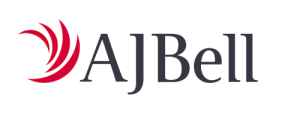During February, our net asset value return was -1.1% and shareholder returns were -1.5%, in comparison to the FTSE All World Index return of -1.2%.
February saw a modest reversal of the strong equity market gains we saw in January, with the higher-rates-for-longer narrative leading to broad based sell-offs across asset classes. The US Federal Reserve (Fed) raised rates again by 25 basis points (bps), as expected, while the European Central Bank and the Bank of England hiked a further 50bps. However, after much positive news flow in January, two key data points in the first half of February acted to revive concerns that inflation may prove more persistent than previously expected, which in turn pushed equities lower. Firstly, nonfarm payrolls came in significantly stronger than expected (517k versus the expected 189k) – a substantial beat to the upside that brings into question how far into restrictive territory policy the Fed needs to push, and equally importantly, the duration of the pause period once the terminal rate is reached. Secondly, after a series of surprises to the downside, US consumer price inflation for January came in above expectations (6.4% versus 6.2%), with core services prices proving much ‘stickier’ than hoped. Clearly, inflation is not coming off as fast as expected, and these developments acted as catalysts for a rapid repricing of terminal rate expectations. Terminal rates are now expected to peak at around 5.5%, and rate cuts in the latter half of the year are no longer clearly being priced.
Overall, global equities, as measured by the benchmark FTSE All World Index, fell by 1.2% in sterling terms over the month, partly reversing gains made in January (+4.5%). Sterling was weaker over the month, which bolstered gains for UK investors. Despite the re-pricing of terminal rates higher (US 10-year yields rose from c.3.5% to c.3.9% over the month), equity markets remained near January highs.
Across sectors, consumer discretionary continued to see strong performance on light positioning and the pricing-out of near-term recession risks. Automobile stocks performed particularly well, reflecting continued strength in new vehicle sales and the still tight inventory backdrop. The two-year semiconductor shortage has been a persistent drag on the sector and the slow improvement in supplies has allowed the sector to capitalise on significant pent-up demand. Aerospace and defence stocks continued to outperform the wider market, reflecting promises of increased military spending from western governments – Europe’s Stoxx Aerospace and Defence index has risen nearly 14% over the year to date, in sterling terms. In contrast, metals and mining stocks performed poorly on the back of declines in commodity prices, which have yet to derive benefit from the China re-opening theme.
On a regional basis, returns were mixed, with Europe (+1.1%) and the UK (+1.9%) performing better than the FTSE All World and US (-0.7%), in sterling terms. The Trust has benefited from the US versus International convergence trade after reducing US exposure in early February. China saw particularly weak performance (-8.6%), snapping a three-month rally that began when it started to ease COVID-19 restrictions. Investors in the region are waiting for more economic data to assess the strength of the recovery, and rising geopolitical tensions between the US and China over Russia is unsupportive of emerging[1]market equities more generally. Across strategies, the Trust’s European Equity strategy performed best for the second consecutive month as the economic outlook for the region has improved. The Japanese Equities strategy showed weakness, which can be attributed to the subpar performance of Chinese equities. This is not surprising, as these two regions have a closely linked trading relationship and tend to display strong correlations in returns.
Vertiv Holdings (+16.2%), which is held within the benchmark, was the most significant contributor to relative performance in February. While fourth-quarter earnings for the company disappointed this month, strong sales growth (17% quarter-on-quarter) on the back of easing supply-chain pressures signalled a brighter outlook for 2023. The Trust’s underweight to Apple (+4.0%) was the most significant detractor from performance. Growth stocks have led the US equity rally so far this year, and more cyclical technology names, notably producers of consumer hardware, have benefited from a more positive macro backdrop and stronger-than-expected consumer demand.
We ended the month at a discount of 1.9%, widening from a discount of 1.3% at the end of January. Net gearing continued to be conservative at 3.6% (with debt at fair value) for month-end, reflecting our expectation that markets will remain volatile in the short term as inflationary pressures persist and the risk of recession rises. Nonetheless, F&C Investment Trust’s corporate structure makes us well placed to withstand further market volatility, and we remain focused on the long-term opportunities for the benefit of our shareholders.











